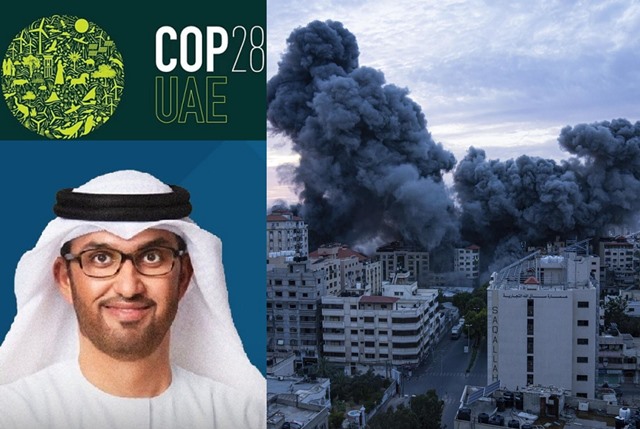Though right form the start or even before it started, the vibes from the Dubai COP 28 Summit were not positive. However, as the jamboree ended, 198 countries announced that they are committed to phase out fossil fuels as they pose the main climate change accelerators.
Ending Fossil Fuels
The countries agreed to contribute to a transition “away from fossil fuels in energy systems in a just, orderly and equitable manner, accelerating action in this critical decade, so as to achieve net zero by 2050 in keeping with the science.”
This could be counted as some progress as just a few years ago it was inconceivable that fossil fuels, which in fact still fulfil almost every country’s energy needs to a large extent will be shamed and might be banned.
However, the announcement doesn’t mean anything, as there is no mandate behind it, but it could help build momentum for more action from governments. The Paris climate agreement’s commitment that countries would pursue efforts to limit global heating to 1.50 C, above pre-industrial levels staged a version of this in 2015.
In fact, the agreement doesn’t underline the urgency required to avoid worsening climate destruction, and it includes language, which may fuel further delay or non-action.
A New Culprit Identified
While oil and gas companies have not yet committed to producing less fossil fuel, their pledge to cut emissions from their own operations is noteworthy.
In the agreement, instead of highlighted the harmful effects of Carbon Dioxide – CO2, the delegates were somehow influenced to focus more on Methane-CH4.
Methane, an odourless gas is produced by virtually every oil and gas project worldwide. When it is not cost effective to capture it, companies often release methane into the atmosphere via venting or burn it through flaring, which ironically converts it into Carbon Dioxide.
The gas also leaks into the atmosphere from facilities via innumerable small, undetected or unreported leaks in pipelines or other equipment, or through large-scale releases called “super-emitter” events.
Scientists say methane has been responsible for up to 30 percent of global warming since the industrial era began, so the Dubai agreement offers a win for the climate, even if the 50 signatories account for less than a third of the industry’s total operational emissions.
Oil companies may choose to shut some production because that is the most cost effective answer to the target of zero flaring of methane. Some of the biggest oil companies have already promised zero routine flaring and near-zero methane, and a number have shown that big progress can be made on the latter.
Renewable Energy
A second COP 28 commitment could affect demand for fossil fuels by tripling the world’s renewable energy generation capacity to at least 11,000 Gigawatts –GW by 2030.
More than 120 countries signed up to this pledge, which will require a big leap in effort from what has been done before. It took 12 years from 2010 to 2022 to achieve the last tripling of renewable capacity. This one has to be done in the space of eight years.
This means that meeting the goal will be difficult, but achievable. This is also supported by the fact that solar and wind are now the cheapest sources of new energy generation in most countries, but the growth of renewables is being held back by a range of bureaucratic and regulations bottlenecks that many authorities are struggling to unblock.
Generating More Efficient Energy
The third COP 28 commitment with implications for hydrocarbons is aimed at boosting energy efficiency.
More efficient and smart use of energy is widely referred to as the “first fuel” in clean energy transitions because it offers some of the quickest and most cost-effective options for cutting emissions, lowering energy bills and bolstering energy security.
The countries that signed up to the 2030 renewables pledge agreed to collectively double the global average annual rate of energy efficiency improvements from around 2 percent to more than 4 percent every year until 2030.
However, all this could translate into real achievement only when the world leaders who attended COP 28 are focussed to turn these words into real ground action by creating plans for implementation of the summit’s goals.
This certainly leaves much to be desired, given the sway of the oil and petrochemicals giants on various governments, an example of which is the manner in which they have been able to turn the attention from CO2 to MH4 at the recent summit. Thus, a resolve coupled with sincere and active policymaking, should pave the way forward but it may also invite political opposition and industry resistance.
(Asad Mirza is a Delhi-based senior political and international affairs commentator.)
For more details visit us: https://lokmarg.com/

